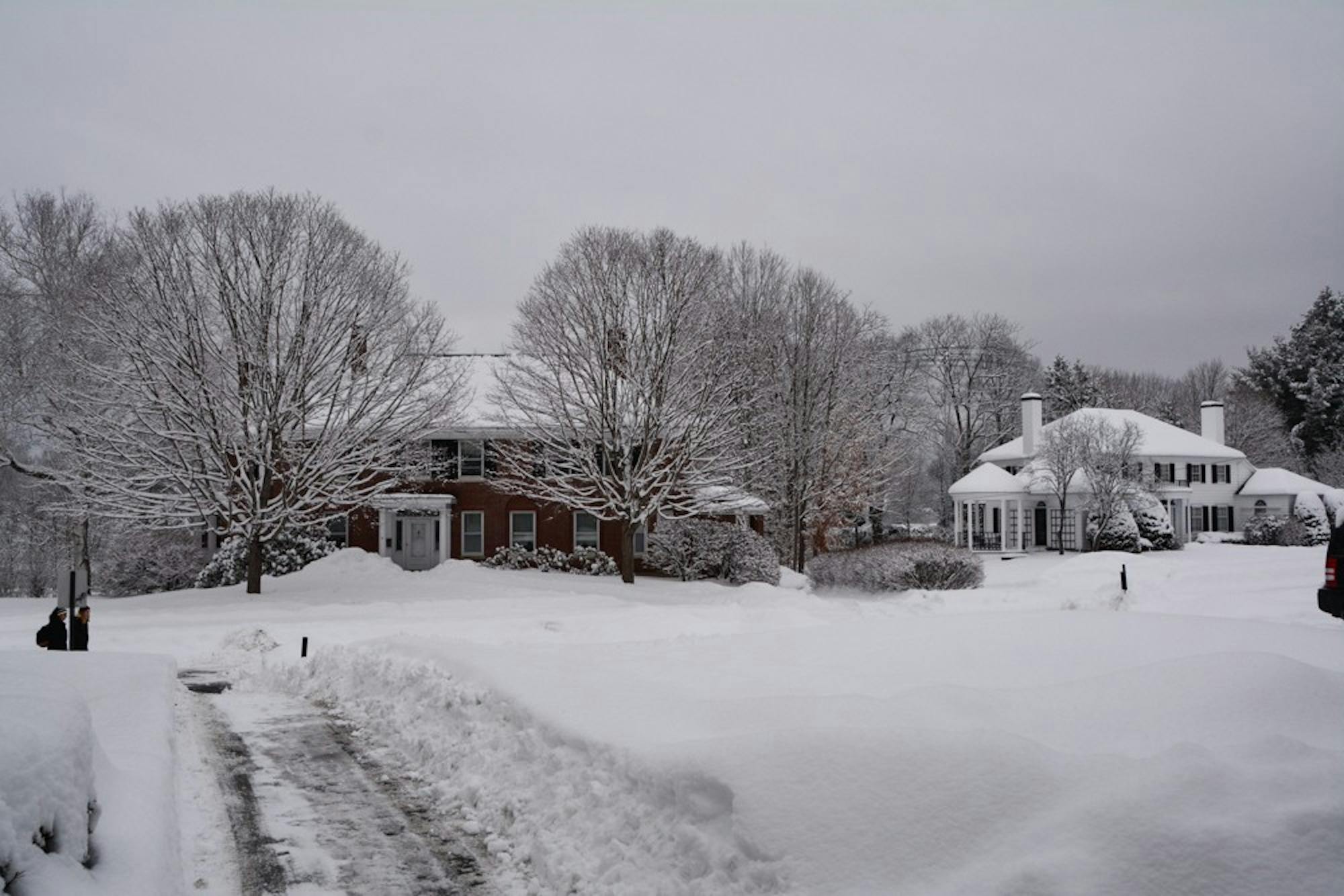Last week as I was walking back to my dorm from Foco, carrying my grab-and-go lunch of cheese pizza, rice and Dr. Pepper, I slipped and fell on the ice. All at once, I was on the ground, my plastic box lay limp beside me, helplessly sprawled open, and my slice of pizza was planted firmly in the snow. The few meager passersby slowed down at the scene of the accident, and I suddenly realized that I was all alone with no one to call for help. I was totally defeated.
I’ve felt this way more than once since returning to Dartmouth. In fact, I’ve felt it many times. What does it mean to have lost your footing entirely, and how can falling become a euphoric experience?
To answer this question, I consulted some friends who have suffered from similar falls, including Mariel Fulghum ’25 who described her recent tumble outside Wheeler Hall.
“I was walking along the snow because I decided the path was too long, and I didn’t feel like walking on it, so I was gonna take a shortcut across the snow,” she said. “Much to my dismay, it was ice. I wasn’t expecting that.”
I asked her if it hurt, and she said, “Yeah.”
“I got back up,” she continued, “Looked around, and made sure no one saw because that was humiliating.”
Fulghum’s story struck me. How might this have impacted her? I observed her nervous body language, her eyes darting fretfully around the room. Clearly, this demanded further investigation.
I asked Fulghum’s friend Millie Keogh ’25 if she has noticed any differences in Fulghum’s behavior since the incident.
“I feel like she looks at the world differently,” Keogh said. “She sees snow and trembles a little bit. I see a quiver in her knees.”
Fulghum remarked that there really is something special about falling on the ice.
“I think like falling in the snow might unlock something within a person,” she said.
I asked what she meant by that, and she paused for a second, and then said, “I think there’s a level of primal vulnerability that comes with the embarrassment of falling into the snow. All of your insecurities are laid bare for anyone to see.”
When I probed her usage of “primal vulnerability,” she said, “I think like if you know, you know. Like if you get it, you get it.”
I decided Fulghum might have a point. Slipping on the ice is deeply painful physically, of course, but also emotionally. For example, when I fell outside Foco, I realized that I am a person and other people are people and I simply cannot escape that. It was momentarily devastating, and I was brought, quite literally, back down to earth. But falling is actually sort of freeing when you think about it long enough to write this article about it.
Everyday, as I stroll across campus, I take these really short steps, and I’m always a little anxious, and every now and then my arms have to shoot out from under me to keep my balance, and so when I finally fell, I think I may have felt something like relief. The worst had already happened. I was free from the anxiety, finally.
I tested this theory out with Fulghum, asking if she thought her fall could have been any worse.
“If someone had been walking by that I didn’t want to see me fall,” she said. I nodded in agreement because she was right. That would be worse.
Or would it? Keogh reflected on her experience on the other side of the picture. As she was walking by Mid Fayerweather, she watched as someone slipped at the top of the stairs and bumped helplessly down to the bottom. While she admitted that part of her did want to laugh at the situation, she recognized that she felt a “strong sense of empathy” in that moment, that she otherwise would never have shared with this total stranger. I found Keogh’s story genuinely beautiful, and it made me reconsider humanity as a whole.
Yes, falling on the ice is, at its core, deeply humiliating. But we all fall in one way or another all the time. That might mean falling behind in a class, falling out of touch with a friend, falling in love. Falling is uncontrollable and uncomfortable, but I encourage you to wallow in that discomfort. Make everyone who witnesses your fall equally as uncomfortable. Make them fall too if you really want to. Reclaim the narrative and the power. Falling is beautiful, and it’s time to stop pretending otherwise.




